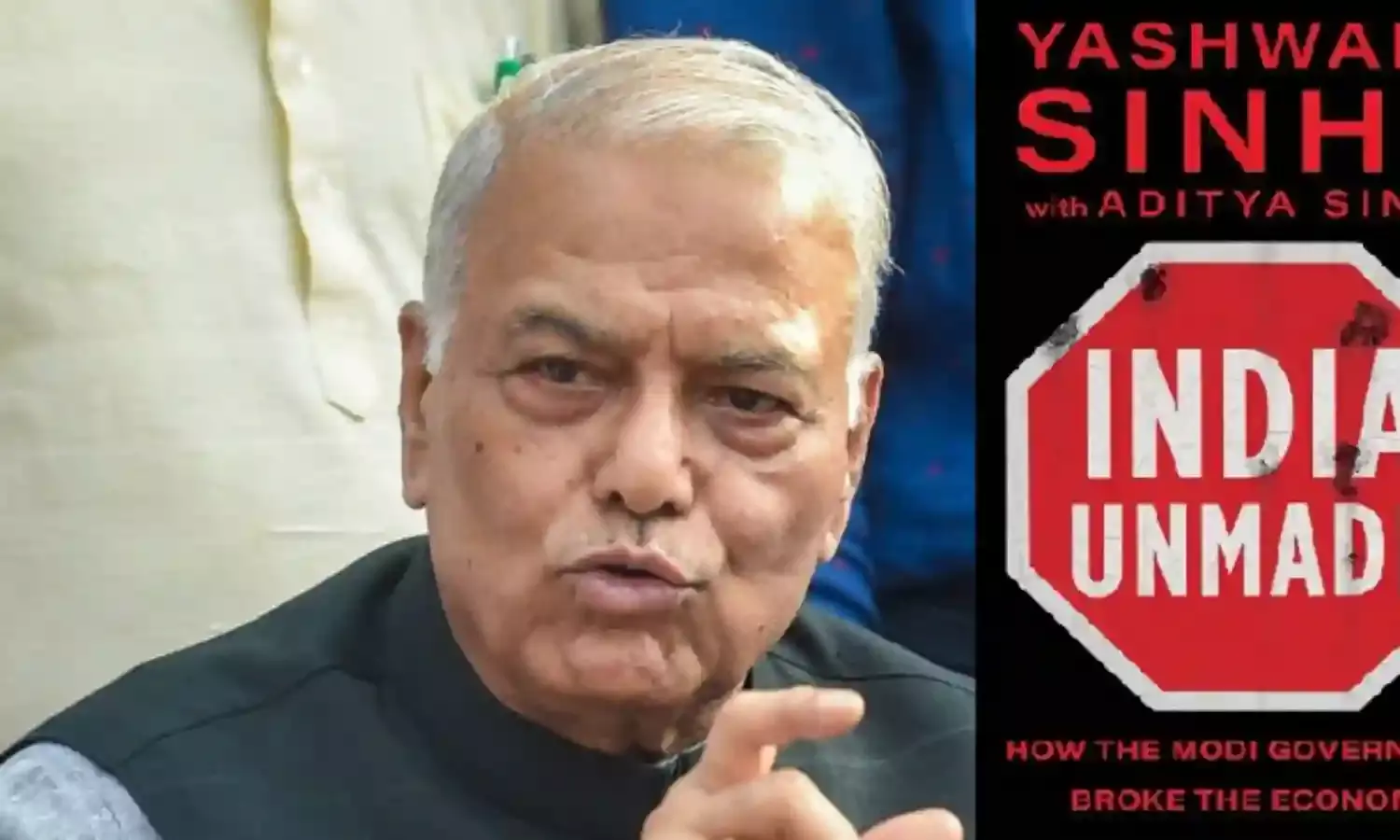‘Government Cluelessness and Ineptitude Squandered India’s Chance of Becoming Middle Income’
Sinha argues that Modi’s lasting legacy will be the catastrophe called demonetisation;

Yashwant Sinha's India Unmade is a cogent critique of Prime Minister Narendra Modi's government's economic stewardship. Equipped with incisive observations and sharp arguments, the book scathingly attacks ‘ill conceived’ policies of the Modi government that ‘blew’ a golden opportunity for India to soar to new economic heights.
The book is set out in eleven chapters dealing with India's economic policies and issues - primarily faced during Modi's tenure - and a brief introduction that spells out the context.
Sinha, a former BJP leader and Minister of Finance under the Prime Minister Atal Bihari Vajpayee led NDA government, elaborates on a series of economic ‘blunders’ that led him to renounce Modi - a man whom he had personally advocated for anointment as PM in 2014. Ranging from demonetisation and GST to farmers’ issues and the banking crisis, Sinha discusses in detail the issues that have marred the present government. He seizes on them and shows how grave miscalculations, poor policy implementation, cluelessness and government ineptitude squandered the chance India had of becoming a middle-income country.
The book, co-authored with journalist Aditya Sinha, blames Modi for fooling the Indian masses with ‘a barrage of false propaganda’ and a ‘pliant’ media, camouflaged by sweet talk and false promises.
Sinha argues that the Modi government's lasting legacy will be the catastrophe that was the demonetisation of high currency notes on November 8, 2016. According to him its effects were so disastrous across sectors that it broke the back of BJP's core vote bank - the micro, small and medium enterprises. And to mollify this sector and forcibly improve liquidity Sinha says the RBI's autonomy was ‘threatened’.
‘The government expected that as a result of demonetisation Rs 3 to 4 lakh crore would not return to banks because it was black money. Those notes would be extinguished and the government would ask the RBI to hand over the amount for government expenditure. However, as per the RBI's annual report in September 2018, 99.3 percent of the cash was returned. The bonaza never materialised for the government.’
The book which barely deviates from its theme of national economics refers to GST as a ‘grand theatrical’ announcement followed by bad design and poor implementation. ‘That GST has been tweaked 200 times already and over 400 notifications and 100 circulars and FAQs have been issued since its launch is standing testimony to the folly of the Modi-Jaitley team.’
India Unmade also discusses the Rafale scam in detail. Sinha says that India is paying more money for the aircraft in the deal the Modi government renegotiated, favouring Ambani; and while the government was at pains to show the extra money was for specialised add-ons, the same add-ons were included in the earlier version of the deal negotiated by the previous government.
Sinha also questions how Reliance Defence - a company set up a mere 10 days before the announcement of the deal - could supersede Hindustan Aeronautics Limited which has over sixty years’ experience in aircraft manufacturing. ‘Neither Reliance Defence nor any of its allied companies have any experience of manufacturing aerospace and defence equipment. Its Pipavav shipyard is facing serious difficulties in offshore patrol vessels for the Indian Navy - a long delayed project that is impacting the navy's operational effectiveness.’
Sinha notes that the malaise in Indian industry during Modi's tenure is typified by his flagship programme 'Make in India' - an unoriginal idea and his biggest failure. Unlike China and the East Asian economies, which thrive on export led economic growth, GDP in India has been achieved on the basis of domestic savings and domestic demand. The Indian economy is sustained by domestic demand, and external demand is only icing on the cake. Sinha opines that there is a need to precede 'Make in India' with 'Make India', which can only be achieved by creating demand for investment goods.
On every conceivable metric, Sinha argues that Modi during the last four years failed his voters, ‘and this truth was hidden from the people through media management and the country was left with nothing more than jumlabazi, alternative facts and bombastic claims.’
However, Sinha himself comes up with nothing particularly new to counter or deal with the issues he describes at length. And despite all the criticism on the economic front, it cannot be forgotten that India has been registering the fastest GDP growth among the world's large economies, under the government’s new method of calculating GDP.
Given the current political climate in the country India Unmade is compelling and timely. It opens up every economic issue on which the current dispensation has been targeted by analysts and the political opposition.

